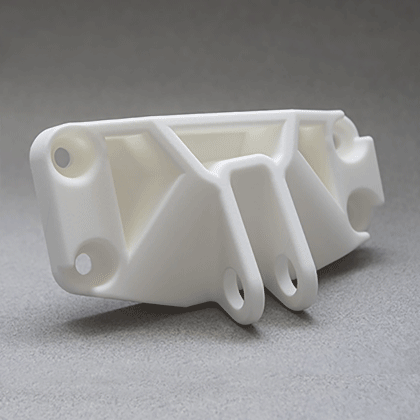In recent years, Selective Laser Sintering (SLS) printing has emerged as a game-changer in the manufacturing industry. This innovative technology has revolutionized traditional manufacturing processes, offering a wide range of benefits and applications across various sectors.

Understanding SLS Printing
SLS printing is an additive manufacturing process that utilizes a high-powered laser to sinter powdered material, typically nylon or other thermoplastic powders, layer by layer to create three-dimensional objects. This process does not require support structures, making it highly efficient and cost-effective. The rise of SLS printing has transformed the way manufacturers approach prototyping, tooling, and end-use part production.
The Impact on Manufacturing Processes
The rise of SLS printing has significantly impacted traditional manufacturing processes. With the ability to produce complex geometries and intricate designs with ease, SLS printing has opened up new possibilities for product development and customization. Manufacturers can now create lightweight, durable parts with high precision, leading to improved performance and functionality across various industries.
Applications Across Industries
The versatility of SLS printing has led to its widespread adoption across industries such as aerospace, automotive, healthcare, and consumer goods. In aerospace, SLS-printed components are used in aircraft interiors, engine parts, and even satellites due to their lightweight and high-strength properties. In the healthcare sector, SLS printing is utilized for creating custom prosthetics, dental implants, and surgical instruments, offering personalized solutions for patients.
Advantages of SLS Printing
One of the key advantages of SLS printing is its ability to produce functional prototypes and end-use parts with high accuracy and consistency. This eliminates the need for expensive tooling and reduces lead times, allowing manufacturers to bring products to market faster. Additionally, SLS printing enables the production of complex assemblies as a single, fully functional part, reducing the need for assembly and minimizing material waste.
The Future of SLS Printing
As the demand for customized, high-performance parts continues to grow, the future of SLS printing looks promising. Advancements in materials science and process optimization are expanding the capabilities of SLS printing, paving the way for new applications in industries such as electronics, defense, and architecture. With ongoing research and development, SLS printing is poised to further revolutionize manufacturing processes and drive innovation across global supply chains.



